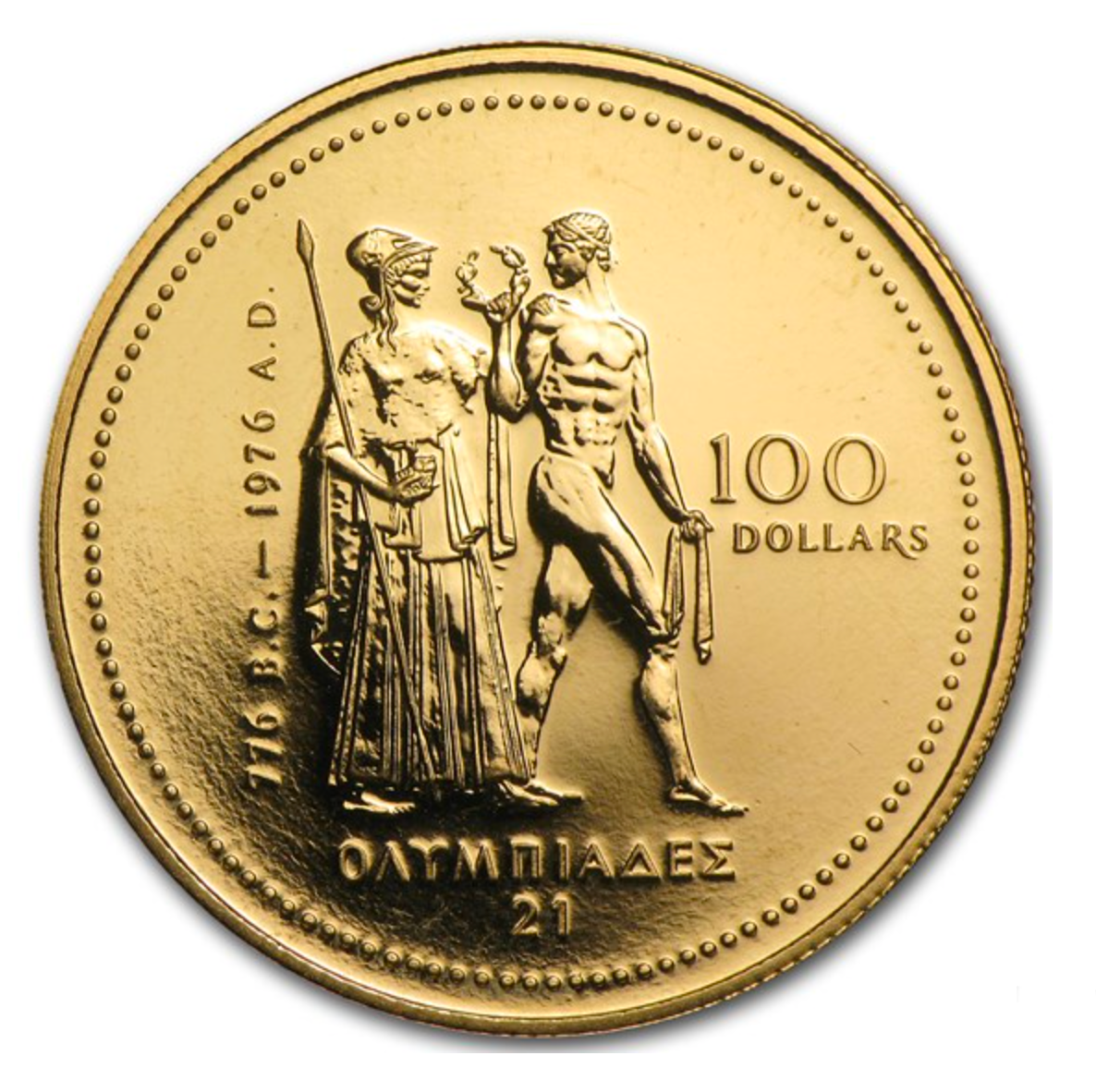
A couple of weeks back, I ordered a 1/4 ounce gold coin on Apmex.com. The coin was to come from a random mint of Apmex's choosing, and was to contain at least 1/4 troy ounce of gold of .999 purity. I used my Apmex Bullion Credit Card to earn 4% back on this $575 purchase. The coin arrived two days later, with free shipping and insurance. I ripped open the package and found...the coin pictured above.
The coin that I received was a 1976 Canada 1/4 oz Gold $100 Olympic BU. This coin sells on Apmex for >$800! I paid $575...so I scored, right?

This Canadian coin is part of a series of collector's coins which were struck to commemorate, and help to finance, the 21st Summer Olympiad, held in Montreal, Quebec, Canada.
Coin Highlights, per Apmex, are:
Contains 0.25 troy oz of .583 fine gold.
Obverse: Right-facing profile of Queen Elizabeth II, and year (1976).
Reverse: Olympic time span, Olympics 21 (in Greek), an ancient Grecian athlete being crowned with a laurel wreath by the goddess Pallas Athena, and face value ($100).
So, I paid $575 for a coin for which Apmex charges >$800 ($836 with credit card) BUT, instead of .999 fine gold, it contains 14K gold (14K/24K = .583). If I was a coin collector, I would consider myself lucky. But, as a bullion stacker, I felt cheated. So, I called Apmex and arranged to exchange this coin for a random mint 1/4 ounce .999 gold coin.
What do you think? Returning the coin seems to be the honest thing to do, and exchanging 14K gold for 24K gold actually fits my goals better. I do have to admit that I felt like an idiot explaining the situation to Customer Service: "So, you want to exchange an $836 coin for a $575 coin?"
Would you have exchanged the coin? Tried to sell it at a coin shop, pawn shop, or eBay? Just kept it and counted your blessings? Let me know in the comments.
Source: Coin specs and images were taken from Apmex.com.